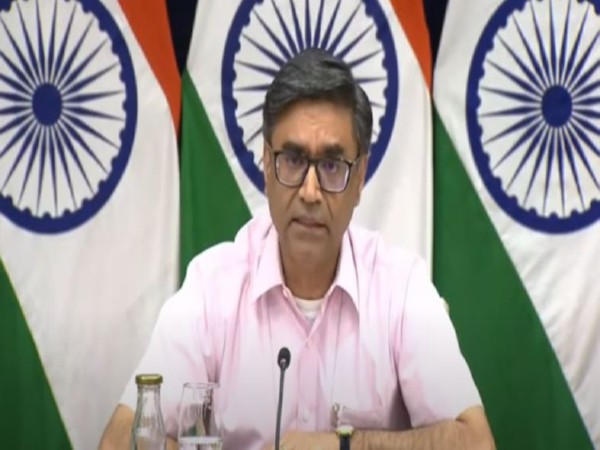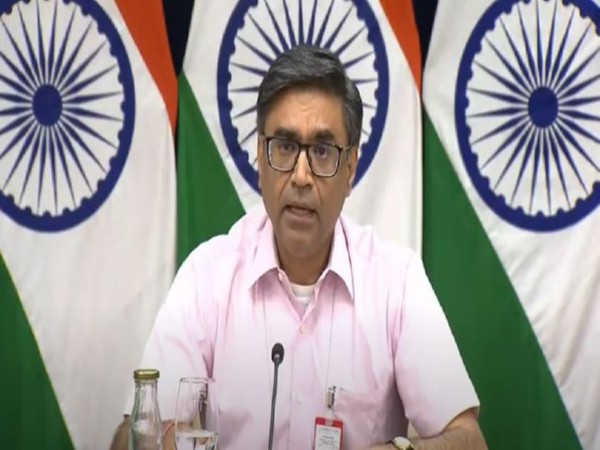India's Real Superpower? Language. And Our Ability to Speak Many
Apr 19, 2025

By Suvir Saran
New Delhi [India], April 19 : Earlier this week, the Supreme Court of India reminded us of something most Indians already know, deep in their bones -- and something the world could learn from us: language is not a dividing line, but a thread that binds. In a culturally affirming verdict, the Court ruled that Urdu is not alien to India, and upheld its use on public signage in Maharashtra.
The Justices wrote: "Urdu is not the language of any one religion... it is not a foreign language."
Let that sink in. Because in India today, as across the world, language has become a political weapon instead of what it truly is -- a bridge, a song, a mirror, a poem.
Sunjoy Joshi, Chairman of the Observer Research Foundation, put it plainly: "Hindi and Urdu are joined at the hip... they share a common linguistic heritage."
That's the truth we've forgotten -- or been made to forget. We are not as divided as we are being told. We are plural by nature. Polyglot by instinct. And Indian by rhythm.
I began learning Urdu at 11, outside the classroom, thanks to my teacher Mr. Tauqir Ahmed and a maulvi sahib who came to my home on weekends. Later, I moved to New York -- and like all unpracticed skills, my Urdu faded. But it never left. Languages learned with love don't disappear. They lie dormant, waiting for music.
I studied Hindi formally in Class 11 and 12 -- even while taking eight subjects, far more than CBSE's required five. Physics, Chemistry, Biology, Mathematics, English -- and in addition: Graphic Design and Art History, Senior Hindi, and Hindustani Classical Music. It was unprecedented. I got 100 in Art, 98 in Music. And I would've taken my Hindi final had it not clashed with Physics.
More than that, I was the undefeated Sanskrit recitation champion in Delhi for six straight years, often against students immersed in Hindi or Sanskrit-medium schools. I studied in a school labelled "elite," but I embraced Sanskrit, not as a dead language, but as a living one. As musical. As mine.
Languages were never divided in my world. I sang Hindi geet, Urdu ghazals and nazms, Sanskrit bhajans, and Rabindra Sangeet and Nazrul Geeti in Bengali. I sang Assamese, Tamil, and Marathi songs with classmates. These weren't performances. These were bonds.
And this must be said now: The South is not separate from this story. The Northeast is not an appendix. Tamil, Telugu, Malayalam, Kannada, Assamese, Manipuri -- these are not regional; they are national. And Kashmiri, Punjabi, Nepali -- these are not peripheries. They are pillars. In Kathmandu, I spoke basic Nepali, surprising locals with my ability to converse. That's the point -- what is foreign if you speak it with feeling?
And when I met drivers in Zurich (Bengali), Hamburg (Pakistani), Paris (Assamese), Newport Beach (Tamil) -- just one word in their language would melt the air between us. Some cried. Some video-called their families to show "a madman singing in my language." That's what language does: it dissolves distance.
Science backs this up. A German study in NeuroImage showed polyglots use cognitive resources more efficiently and flexibly. Another study from University College London found that bilinguals grow denser grey matter in brain areas linked to executive control. Languages don't just connect people -- they make your brain a supercomputer.
Former PM Atal Bihari Vajpayee, fluent in Urdu, once said: "Urdu sirf zabaan nahi hai, tahzeeb ka naam hai." ("Urdu is not just a language, it is the name of a culture.")
In Parliament, Sushma Swaraj and Manmohan Singh exchanged verses across the aisle -- ideological rivals, but poetic equals. Language was their common currency. That's not decoration. That's statesmanship.
Globally, this is our diplomatic edge. Henry David Thoreau read Sanskrit and meditated on the Bhagavad Gita, writing: "In the morning I bathe my intellect in the stupendous and cosmogonal philosophy of the Bhagavad Gita."
His ideas on civil disobedience would shape Gandhi, who would shape Martin Luther King Jr. That lineage -- Sanskrit to Walden to Sabarmati to Selma -- is not fiction. It is fact. Language enabled that.
Let us not shrink into silos now.
As the Court affirmed: Urdu is ours. But so are Tamil, Marathi, Assamese, Malayalam, Telugu, Kannada, Bengali, Hindi, Punjabi, Kashmiri, Nepali, and more. Each one deepens us. Each one enlarges us.
India was never meant to speak in one voice.
It was built to sing in chorus.
Disclaimer: Suvir Saran is a Masterchef, Author, Hospitality Consultant And Educator. The views expressed in this article are his own.




















